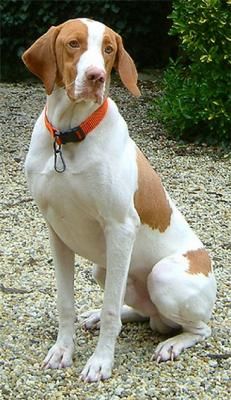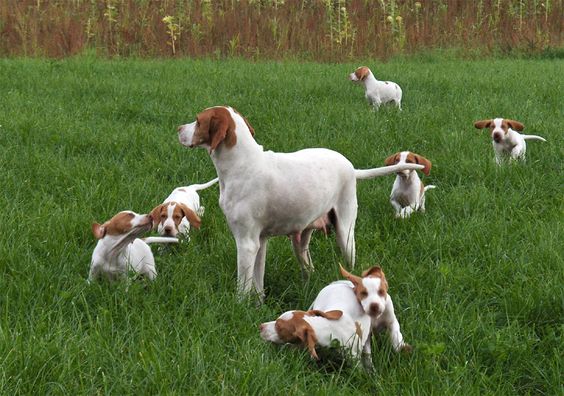Braco de Saint Germain
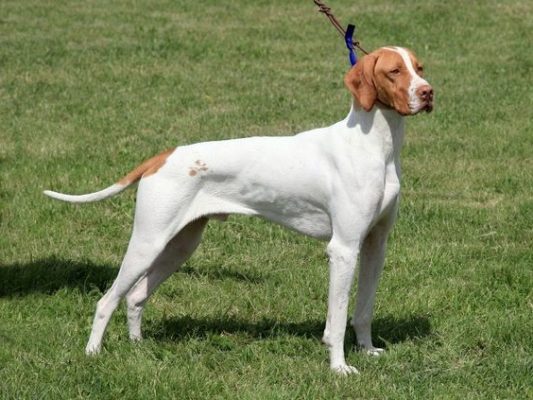
The Braque Saint-Germain is a rather obedient and reserved dog. It is unlikely to make a good guard. This breed cannot be classified as a guard dog. But for the family, the four-legged will be a great companion that quickly becomes attached to the owner. Kind and affectionate, the dog never shows aggression towards children. But it is not recommended to leave it alone with babies.
Tabla de Сontenido
Breed Information
| Another Name | Saint Germain Pointer |
| Origin | France |
| Height | Males 56-62 cm Females 54-59 cm |
| Weight | 18-26 kg |
| Fur | Short, medium hardness |
| Color | Grayish-white, with red spots |
| Lifespan | 10-12 years |
| FCI Classification | Pointing Dogs |
| Group | Hunting dogs, apartment dogs, dogs for kids |
| Price | $600-800 |
Breed Photos
Origin History
The breed was bred by gamekeepers from Saint-Germain-Lo, near Paris, in the 1930s. The Braque Saint-Germain came from a cross between the French Braque and the Pointer. They were brought from England, especially for King Charles X. The dog was trendy at the beginning of the last century, but today has become quite rare. The standard of the breed was approved in 1964.
Appearance
The Braque Saint-Germain is a dog of sturdy build. The chest is broad and deep. The back is short and straight. The neck is solid and long. The head has a pronounced occipital tubercle. The muzzle of the dog is long, straightforward, and hunched over. The nose is wide. The ears are long and floppy, not attached to the head. The eyes are light brown, large, set straight.
The limbs are strong and muscular. The paws are long, with tightly clenched toes. The tail is thick at the base, tapering strongly toward the end. The coat is not stiff, short. Coloration is grayish-white, with red spots.
Character
The Braque Saint-Germain is a rather obedient and reserved dog. It is unlikely to make a good guard. This breed cannot be classified as a guard dog. But for the family, the four-legged will be a great companion that quickly becomes attached to the owner. Kind and affectionate, the dog never shows aggression towards children. But it is not recommended to leave it alone with babies.
First and foremost, the Braque Saint-Germain is a hunter. It is characterized by high energy, excitement, and sometimes stubbornness. He is loyal to strangers. With early socialization, he gets along well with other dogs.
Care
Braque Saint-Germain can live both in an apartment and in the countryside. Constant physical activity and walks in the fresh air should be an indispensable attribute.
The coat is short and undemanding in care. It is enough to comb it regularly with a special brush. During shedding, which occurs twice a year, you need to comb out the pet every day. You should not often bathe so as not to wash away the protective coating on the dog’s coat. The dog’s long ears also need constant cleaning. The same can be said about teeth.
Training
The Braque Saint-Germain is an intelligent and persistent dog. It is easy to train. The pet willingly and diligently learns new things. It is vital to find the right approach to training. Under no circumstances shout at the pet and do not use brute force. Training in the form of a game will interest the dog much more. Don’t forget to motivate your pet with praise and affection, as well as different treats. Correct and unexciting training turns your dog into a top-notch hunter and a great companion.
Common Diseases
Braque Saint-Germain’s are not known for their robust health. Common ailments:
- hip dysplasia;
- tartar;
- eye and ear infections.
To avoid otitis media, you should regularly clean your pet’s floppy ears, which are prone to inflammation. You don’t want to start this process to prevent your dog from going deaf. To prevent tartar and other dental diseases, you need to brush your pet’s teeth regularly. It should be done with a special silicone toothbrush for dogs using a paste. Braque Saint-Germain’s eyes also need to be examined and cleaned to avoid infectious diseases.
Nutrition
The Braque Saint-Germain needs a nutritious and proper diet. The pet of this breed is usually active and energetic. Therefore, the main part of the diet should consist of food rich in proteins and minerals. You should also not forget about chondroprotective for better functioning of ligaments and tendons.
Braque Saint-Germain is picky about food. Inadequate nutrition can disrupt the proper functioning of the animal’s body. Therefore, when formulating the pet’s diet, it is better not to guess and immediately contact a specialist. He will help you with the right advice. To avoid problems with nutrition, it is recommended to use ready-made food.
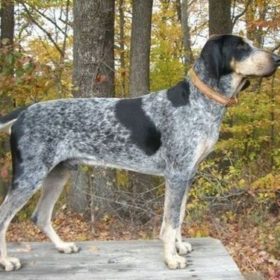 Pequeño Sabueso Azul de Gascuña
Pequeño Sabueso Azul de Gascuña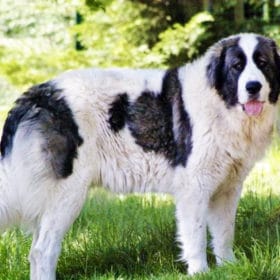 Pastor Rumano de Bucovina
Pastor Rumano de Bucovina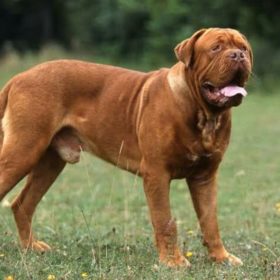 Dogo de Burdeos
Dogo de Burdeos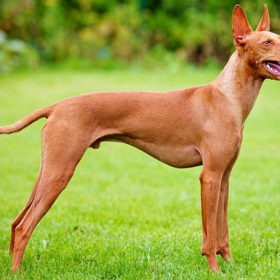 Pharaoh Hound
Pharaoh Hound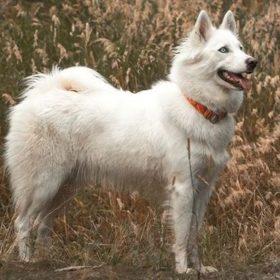 Laika de Yakutia
Laika de Yakutia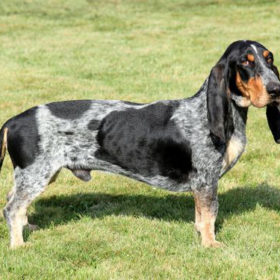 Basset Azul de Gascuña
Basset Azul de Gascuña
